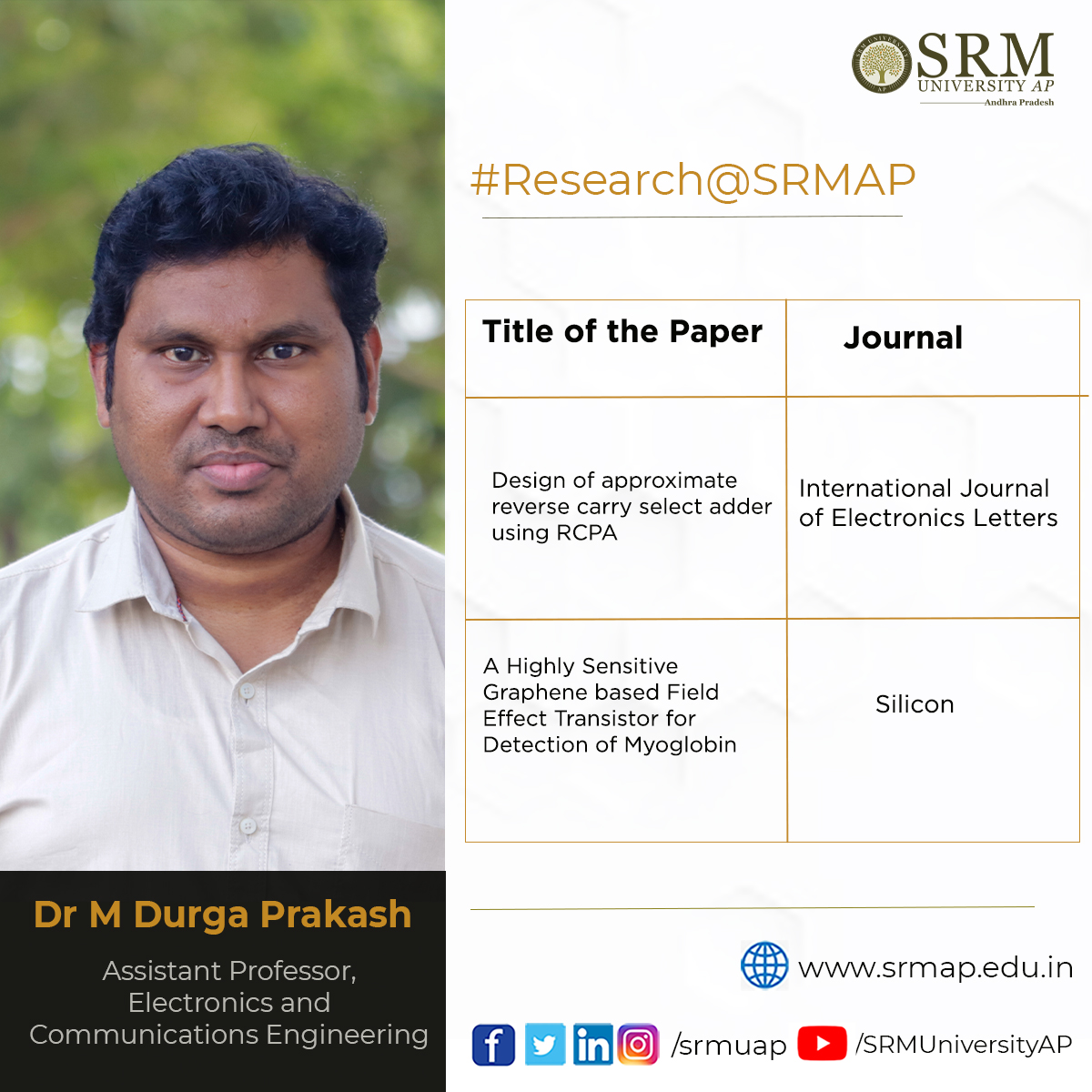 By publishing two papers in well-acclaimed research journals, Assistant Professor Dr M Durga Prakash of the Department of Electronics and Communication Engineering is expanding the possibilities of his research domain through innovative ideas. The first paper was published in the International Journal of Electronics Letters, an internationally renowned peer-reviewed rapid communication journal. It is titled Design of approximate reverse carry select adder using RCPA and has an impact factor of 1.5.
By publishing two papers in well-acclaimed research journals, Assistant Professor Dr M Durga Prakash of the Department of Electronics and Communication Engineering is expanding the possibilities of his research domain through innovative ideas. The first paper was published in the International Journal of Electronics Letters, an internationally renowned peer-reviewed rapid communication journal. It is titled Design of approximate reverse carry select adder using RCPA and has an impact factor of 1.5.
Abstract
An approximate carry select adder (CSLA) with reverse carry propagation (RCSLA) is shown in this work. This RCSLA was designed with a reverse carry propagate full adder (RCPFA). In the RCPFA structure, the carry signal propagates in the reverse direction, that is, from MSB part to LSB part, then the carry input has greater importance compared to the output carry. Three types of implementations were designed in RCPFA based on the design parameters. This method was applied to RCA & CSLA to design other types of approximate adders. These designs and simulations were done in CADENCE Software tool with 45 nm COMS technology. The design parameters of the three CSLA implementations with RCPFA are compared with the existing CSLA adders.
The other paper, A highly sensitive graphene-based field-effect transistor for detection of myoglobin, has been published in the Silicon Journal, an international and interdisciplinary journal, with an impact factor of 2.67.
Abstract
Biomedical applications adapt Nanotechnology-based transistors as a key component in the biosensors for diagnosing life-threatening diseases like Covid-19, Acute Myocardial Infarction (AMI), etc. The proposed work introduces a new biosensor, based on the Graphene Field Effect Transistor (GFET), which is used in the diagnosis of Myoglobin (Mb) in human blood. Graphene-based biosensors are faster, more precise, stronger, and more trustworthy. A GFET is created in this study for the detection of myoglobin biomarker at various low concentrations. Because graphene is sensitive to a variety of biomarker materials, it can be employed as a gate material. When constructed Graphene FET is applied to myoglobin antigens, it has a significant response. The detection level for myoglobin is roughly 30 fg/ml, which is quite high. The electrical behaviour of the GFET-based biosensor in detecting myoglobin marker is ideal for Lab-on-Chip platforms and Cardiac Point-of-Care Diagnosis.

